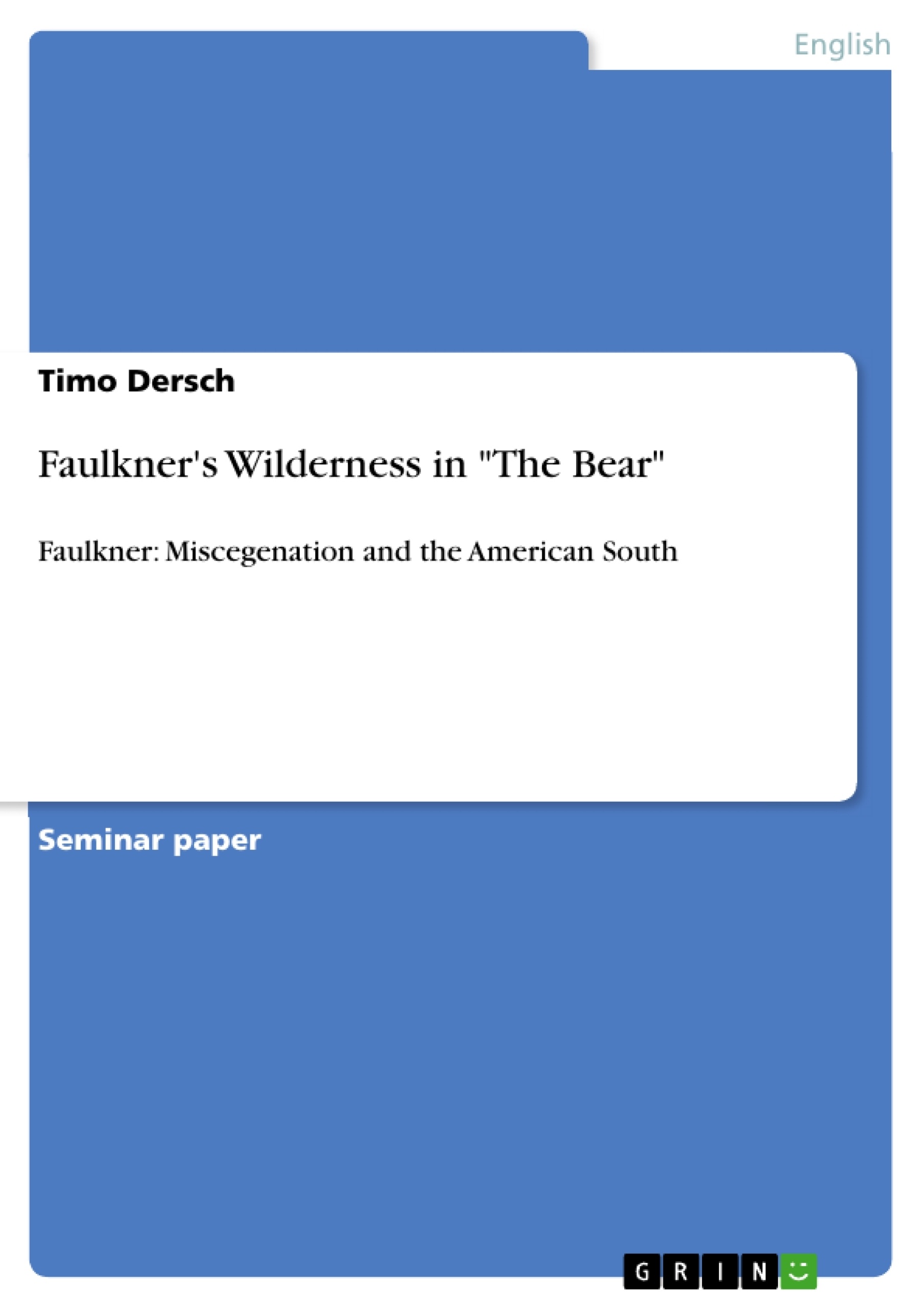This paper highlights the affinity of Faulkner towards the wilderness exemplarily for his story “The Bear” and regard its function and meaning from different perspectives. It tries to find a category to put the story into and illustrates the fact that there are several functions the wilderness has and represents in the story. Those functions include the two main topics, the educational function and the aim for calling the reader’s attention to the destruction of this once untouched nature area. The following work will focus on this two main functions and tries to present them in an understandable way by giving references to in-text-quotations, historical background, and references to other examples out of Faulkner’s works.
Table of Contents
- Faulkner's Wilderness in The Bear
- Introduction
- Naturalism and the Bear
- The Symbolic Bear
- The Historical and Literary Background
- Conclusion
Objectives and Key Themes
This paper explores the significance of wilderness in William Faulkner's short story "The Bear," focusing on its functions and meanings. It analyzes how the wilderness serves as an educational tool for the characters and highlights the story's warning about the destruction of nature. The paper utilizes in-text quotations, historical background, and references to other Faulkner works to present its arguments.
- The educational function of wilderness
- The destruction of wilderness
- The role of the bear as a symbol of nature
- The connection between wilderness and Southern society
- The themes of slavery, miscegenation, and the doom of the American South
Chapter Summaries
The introduction establishes the context of Faulkner's work and highlights the recurring presence of wilderness in his stories. It introduces "The Bear" as a central piece in his collection "Go Down, Moses."
The following chapter examines the possibility of categorizing "The Bear" as a naturalistic work. While the story contains elements of naturalism, the paper argues that it goes beyond this simple classification.
The chapter "The Symbolic Bear" delves into the deeper meaning of the bear as a symbol of wilderness and its demise as a representation of nature's destruction.
The chapter on historical and literary background analyzes the significance of Faulkner's personal experiences and the historical context of the American South in understanding the story's themes. This section also explores the relationship between the fictional setting and the real Mississippi Delta.
Keywords
The main keywords and focus topics of the text include: William Faulkner, The Bear, wilderness, nature, symbolism, education, destruction, Southern literature, slavery, miscegenation, Mississippi Delta, Yoknapatawpha County, American South.
- Quote paper
- Timo Dersch (Author), 2011, Faulkner's Wilderness in "The Bear", Munich, GRIN Verlag, https://www.grin.com/document/180140



